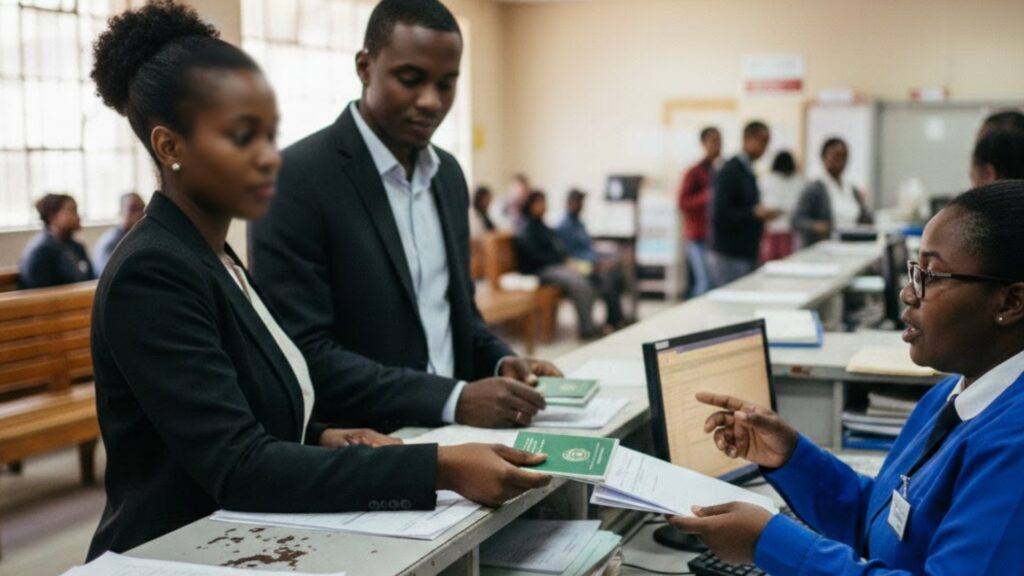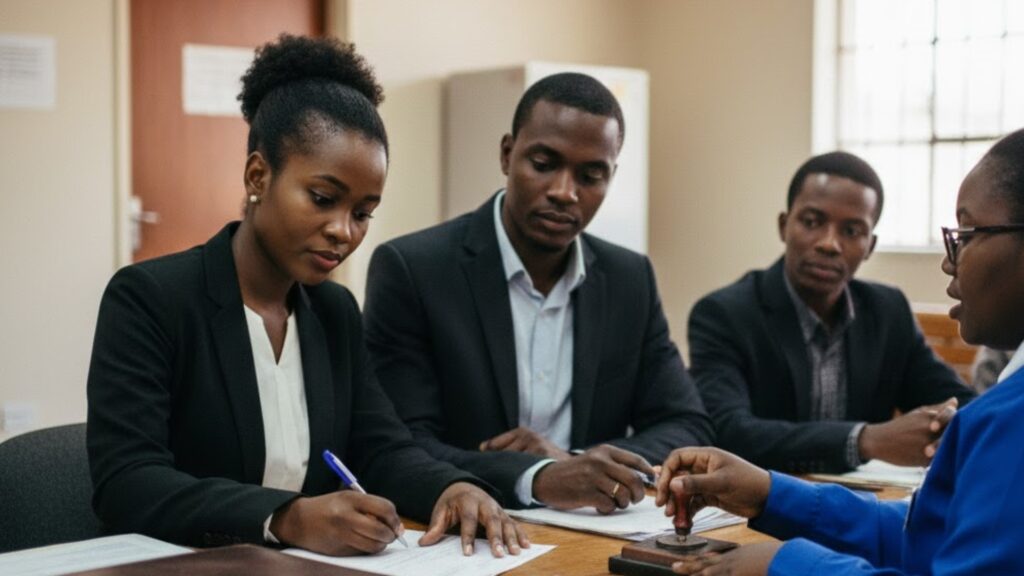South Africa recognises more than one way to formalise a relationship, and each option has different legal consequences. That includes how assets are handled, what happens to debt, and what you must prove if your status is questioned later.
One term you will see often is civil marriage, because it is the most common route through Home Affairs. This guide explains the main options, how civil marriage fits into the bigger picture, and what to check before you commit.
What are the main types of marriages in South Africa?
In most everyday situations, there are three recognised options: civil marriage, customary marriage, and civil union. Each has its own legal framework and practical requirements, especially around registration and proof.
If you are unsure which one applies to you, start with how the relationship was solemnised and what paperwork was filed. Your documents matter more than what friends or family call the relationship.
| Marriage type | Governing law | Who it is commonly used by |
|---|---|---|
| Civil marriage | Marriage Act 25 of 1961 | Opposite-sex couples using a marriage officer |
| Customary marriage | Recognition of Customary Marriages Act 120 of 1998 | Couples marrying under customary law practices |
| Civil union | Civil Union Act 17 of 2006 | Same-sex or opposite-sex couples choosing this framework |
What is civil marriage and who can enter into one?
A civil marriage is concluded under the Marriage Act and must be solemnised by an authorised marriage officer, with two witnesses present. It must also be registered with Home Affairs, because registration is what gives you reliable proof later.
If you want a plain-language overview of what civil marriage means in general, Wikipedia’s page on civil marriage is a useful starting point.

What paperwork and steps make a marriage legally valid?
Validity usually comes down to proper solemnisation, witnesses, and correct registration. Problems arise when couples assume a ceremony alone is enough, or when documents are never filed or cannot be found later.
If you have a civil marriage and cannot get a copy of your marriage certificate, deal with it early. It becomes urgent during divorce, estate matters, or property transfer.
How does a customary marriage work in practice?
A customary marriage is concluded in accordance with customary law and is recognised when legal requirements are met. In real life, confusion often comes from proof, especially where families agree socially but paperwork is incomplete.
Customary marriages can also raise extra issues if there is more than one spouse. Those cases need careful handling to avoid disputes later.

What is a civil union and how is it different from civil marriage?
A civil union is a separate legal route that allows both same-sex and opposite-sex couples to formalise a relationship. It must be solemnised by a designated officer and registered, much like a civil marriage.
Day to day, the biggest differences are usually administrative and procedural. The practical effect depends heavily on the property system you choose, not only the label used.
How do property regimes affect marriage in South Africa?
Property regimes decide how assets and debt are treated during the relationship and if it ends. Many people focus on the ceremony, but the property regime often determines the real financial outcome.
If property ownership and transfers are part of your plans, it helps to understand the process from a conveyancing perspective. The overview on professional conveyancing attorneys in Durban explains why correct documentation matters.
When do you need an antenuptial contract?
If you do not want the default property system, you must usually sign an antenuptial contract before the marriage. That applies whether you are entering a civil marriage or another recognised route that allows you to choose your property system.
If you are reviewing a draft or trying to understand exclusions and obligations, the contracts attorney resource is a practical reference point.

Are religious marriages legally recognised on their own?
A religious ceremony can be meaningful, but it does not automatically create a legally recognised status for civil purposes. Couples often protect themselves by also formalising the relationship through civil marriage or a civil union, so they have clear legal proof.
If you are unsure whether your ceremony created legal status, check what was registered and what certificate you can produce.
Can you change your marital property system after marriage?
It may be possible, but it is usually not a quick fix. Changing a marital property regime after marriage often requires a formal court process and may involve notifying creditors.
This is why planning early matters. If you are already married and worried about risk, get advice before signing new contracts or taking on major debt.
What should you do before getting married to avoid future disputes?
Start by confirming which legal route you are using, then decide on the property regime that matches your situation. If you plan a civil marriage, do not leave paperwork to the final week, because mistakes become harder to correct.
Use this short checklist:
- Confirm whether you are entering a civil marriage, customary marriage, or civil union
- Decide on the property regime and whether an antenuptial contract is needed
- Gather certified ID documents and any prior divorce or death certificates
- Ensure the marriage is properly registered and keep copies of certificates safely
- Update estate planning if you have children, property, or business interests
If you are planning for long-term protection, including guardianship nominations and wills, the estate planning attorney page gives useful context.
If you need help understanding your options before you sign anything, start with get legal advice and take your documents with you.


